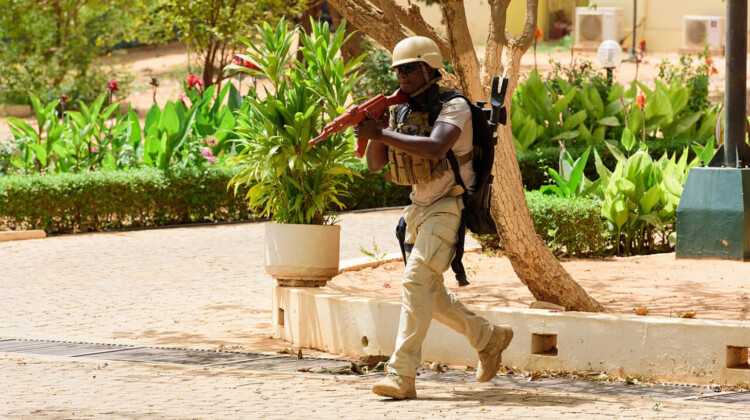Africa | 🇲🇱🇧🇫 🇳🇪 🇬🇳 | War in West Africa
Scenes in West Africa as Mali and Burkina Faso send their troops to go fight in defending Niger.
Guinea, Cape Verde, Algeria and the AU against any invasion in Niger
Unfolding: "A fight for Africa's independence"
Tense emotional scenes pic.twitter.com/3HYps6mrXv
— Sphithiphithi Evaluator (@_AfricanSoil) August 20, 2023
In recent years, the coups in Burkina Faso, Guinea, Mali, and now Niger paint a worrisome picture of the region’s governance challenges. While each situation is unique, the underlying factors contributing to these upheavals warrant closer examination. Socioeconomic disparities, corruption, ethnic tensions, and fragile democratic institutions have collectively created an environment conducive to power grabs by military factions.
Potential Ramifications
The decision by Niger’s new rulers to authorize neighboring armies for intervention raises both hopes and concerns. On one hand, such a move could deter potential aggressors, signaling a strong regional stance against destabilization. It could also prevent further loss of life and protect civilian populations. However, on the other hand, external military intervention can be a double-edged sword. It may inadvertently exacerbate tensions, fueling narratives of interference and serving as a rallying point for anti-government factions.
“The Burkinabe and Malian Ministers … reiterated their rejection of an armed intervention against the people of Niger which will be considered as a declaration of war,” it said in a statement, as cited by Reuters.
The “Declaration of War” Warning
Juntas in Burkina Faso and Mali have warned that any foreign military intervention in Niger would be perceived as a “declaration of war.” This stark statement underscores the intricate web of relationships in West Africa, where regional dynamics are intertwined. Such a declaration could lead to a broader conflict that could have far-reaching consequences, affecting not only the nations directly involved but also the stability of the entire region.
~
The recent authorization of intervention by neighboring armies in Niger highlights the intricate challenges faced by West African nations striving for stability amidst political turmoil. While the move may be viewed as a proactive measure to safeguard the region, it also raises concerns about sovereignty, regional dynamics, and potential unintended consequences. The highly volatile situation in the region underscores the urgent need for collective efforts to address the root causes of political instability. As we contemplate the complex interplay between national autonomy and regional cooperation, one question lingers: How can West Africa forge a path toward lasting stability while honoring both its individual nations and the unity of the entire region?










COMMENTS